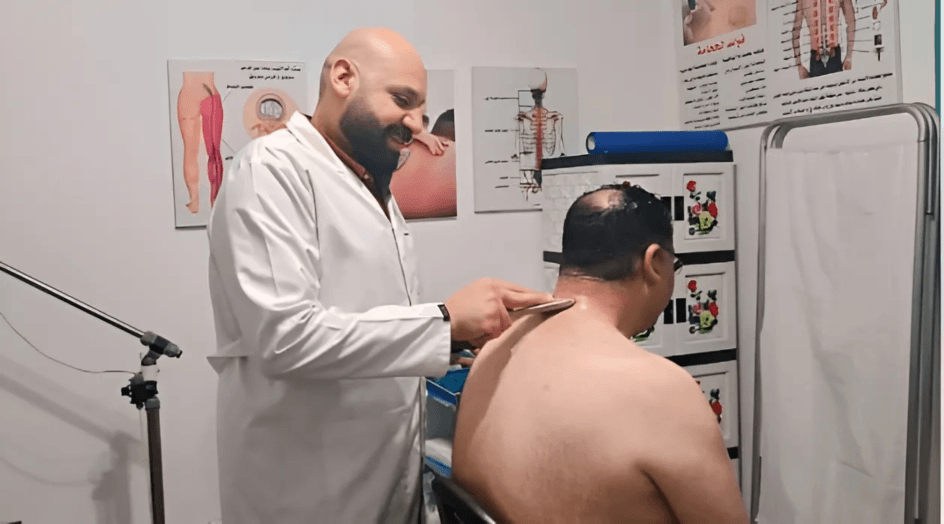

A herniated disc, also known as a bulging disc, is a medical condition that occurs when one of the cartilage discs between the vertebrae protrudes from its normal position. This condition can be extremely painful and may affect your quality of life. In this article, we will discuss the causes of a herniated disc, the symptoms associated with it, and the available treatment options.
For reservations and communication
Causes of herniated disc
There are many reasons that may lead to a herniated disc, including:
- Age: As we age, cartilage discs lose their flexibility and elasticity, making them more susceptible to injury and herniation.
- Physical stress: Lifting heavy weights or making sudden and incorrect movements can put pressure on the cartilage discs, increasing the risk of herniation.
- Injuries: Sports accidents or injuries resulting from traffic accidents can lead to damage to the cartilage discs.
- Genetic factors: Sometimes, genetics can play a role in increasing the risk of disc herniation.
- Lifestyle: Lack of physical activity and being overweight can contribute to increased pressure on the spine, leading to disc herniation.
Symptoms associated with a herniated disc
Symptoms vary depending on the location and severity of the herniation, but common symptoms include:
- Pain: The affected person may feel severe pain in the back or neck, which may radiate to the extremities.
- Numbness or weakness: Numbness or weakness may occur in areas supplied by the affected nerves.
- Difficulty moving: The person may have difficulty moving or bending due to pain.
- Changes in walking: The walking pattern may change due to pain or weakness in the extremities.
طرق العلاج
Treatment options for a herniated disc range from conservative treatments to surgery, depending on the severity of the condition. Options include:
- Drug therapy: These include painkillers and anti-inflammatory medications to relieve pain and inflammation.
- Physical therapy: Physical therapy can help strengthen the muscles around the spine and improve flexibility.
- Steroid injections: In some cases, steroid injections may be used to reduce inflammation and pain.
- Surgery: In severe cases that do not respond to conservative treatment, surgery may be necessary to remove the herniated portion of the disc.
- Lifestyle changes: Maintaining a healthy weight and exercising regularly can help reduce symptoms and prevent the condition from getting worse.
Conclusion
Herniated disc is a medical condition that can be painful and affect the quality of life. It is important to recognize the symptoms and causes associated with this condition, as well as understand the available treatment options. If you are experiencing similar symptoms, it is advisable to see a doctor to receive the appropriate diagnosis and treatment. Maintaining a healthy lifestyle and following prevention guidelines can help reduce the risk of developing a herniated disc. In this context, the Egypt Center comes as a leading example in providing comprehensive and integrated health care and services. The clinics provide various medical services that include non-surgical treatment of herniated disc under the supervision of a team of specialized doctors and qualified practitioners.
#With_the_Center_You_Will_Be_Treated_from_the_Disease_of_the_Era
Share this article
Suggested Articles
Copyright © 2024 Egypt Chiropractic Center | All Rights Reserved & Powered by Infinity Creative














